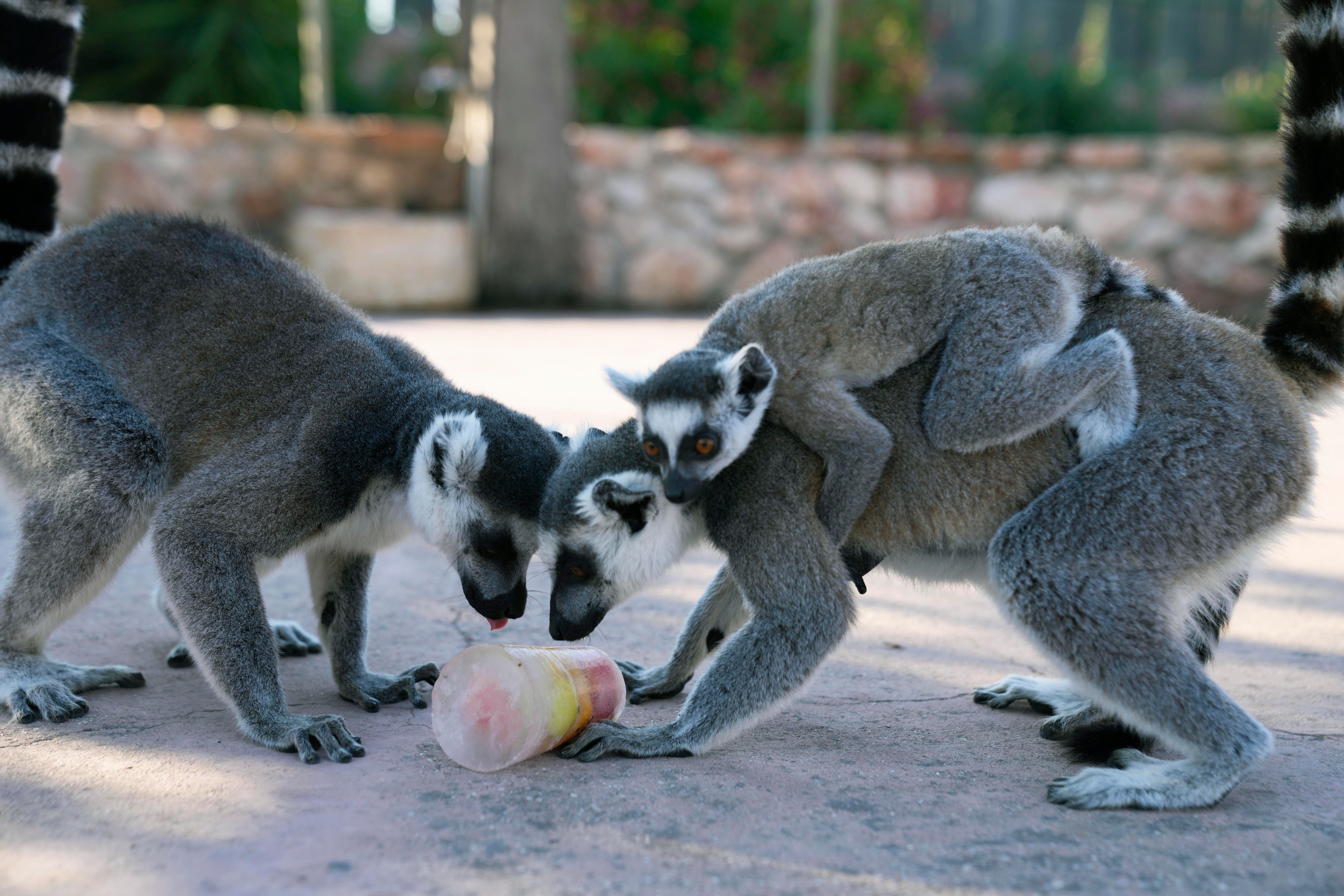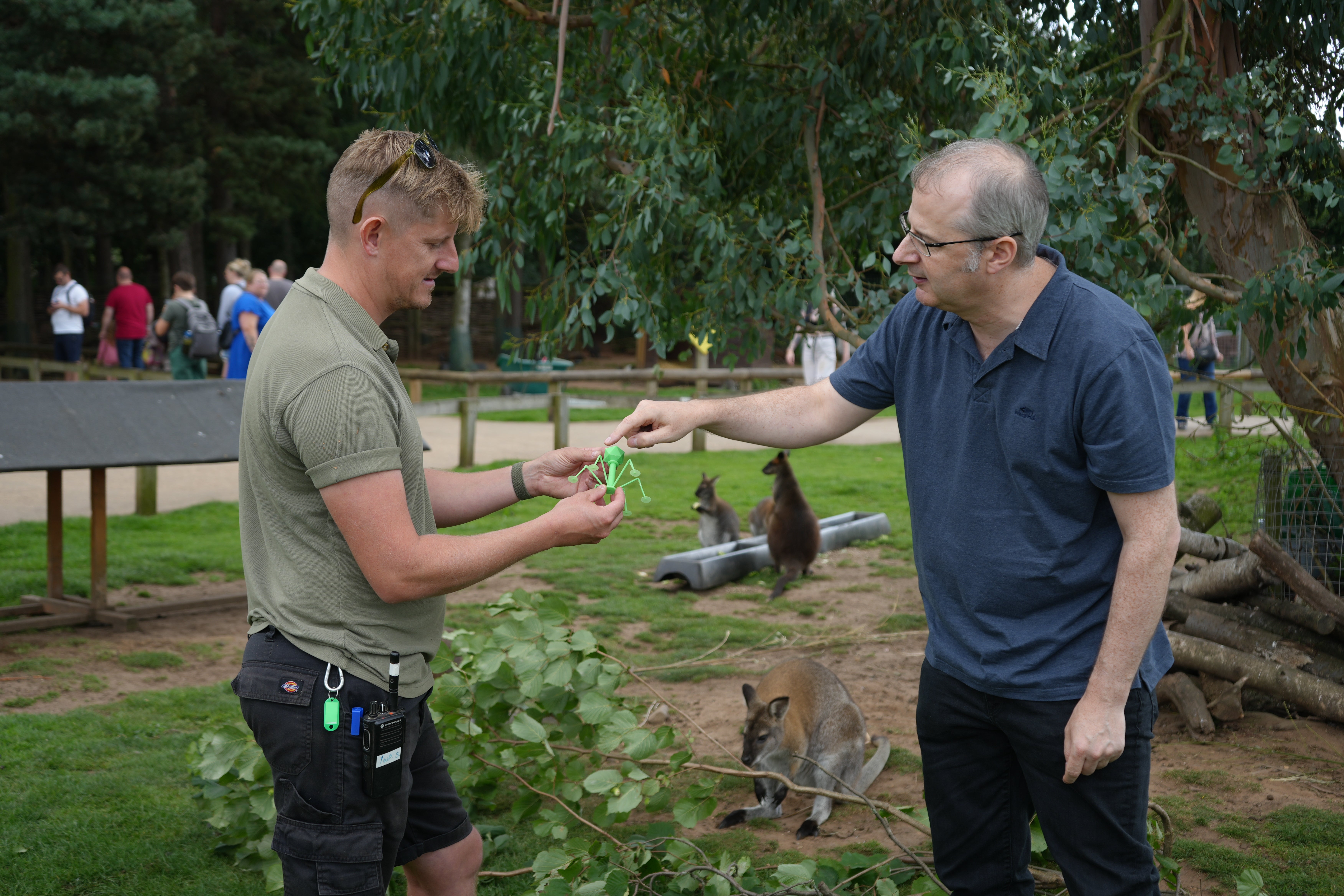Poo of endangered species ‘could help fight against diabetic ulcers’
University researchers have found faeces from animals including lemurs and Guinea baboons could save the NHS an estimated £1 billion a year by treating foot ulcers

Your support helps us to tell the story
This election is still a dead heat, according to most polls. In a fight with such wafer-thin margins, we need reporters on the ground talking to the people Trump and Harris are courting. Your support allows us to keep sending journalists to the story.
The Independent is trusted by 27 million Americans from across the entire political spectrum every month. Unlike many other quality news outlets, we choose not to lock you out of our reporting and analysis with paywalls. But quality journalism must still be paid for.
Help us keep bring these critical stories to light. Your support makes all the difference.
The poo of endangered species could help fight diabetic foot ulcers, scientists believe.
Researchers at the University of Sheffield found the faeces from a range of under-threat animals such as Guinea baboons, lemurs and Visayan pigs could be used to treat the condition.
They found that naturally occurring viruses in the poo, known as bacteriophage, can kill antibiotic-resistant bacteria that cause the foot ulcers.
Once further research is undertaken, the naturally occurring bacteria could potentially be included in dressings applied to the previously untreatable foot ulcers of diabetic patients.
The hard-to-treat condition results in 7,000 amputations a year and the new potential treatment could save the NHS an estimated £1 billion a year, researchers said.
Professor Graham Stafford, chair in Molecular Microbiology at the University of Sheffield, said: “Despite the smell, it turns out that the faecal matter of endangered species could hold the key to killing infectious bacteria that are otherwise resistant to antibiotics.
“So far we have managed to find antibacterial viruses from Guinea baboon, giraffe, lemur, Visakan pigs, and our favourite, the cuddly binturongs and are working hard to develop these into viable treatments for patients whose next option is the loss of a toe, foot or leg.
“Importantly, the treatment could also help reduce costs of about £1 billion per year to the NHS.”
Led by Prof Stafford, the team has used the poo of animals at Yorkshire Wildlife Park (YWP) to isolate several bacteria that could be used to successfully treat patients.
The work is part of a wider drive in UK Bioscience to find new antimicrobials to combat the challenge of antimicrobial resistance.

Professor Stafford added: “We have been searching for new treatments for antibiotic resistance for a while and we are the first to look for such a virus in zoo poo. We look forward to the poo pick up, which the wonderful team at the zoo place in a cool box in a fridge for us.
“It’s a delight that endangered species are contributing to such a positive and powerful purpose. It provides an ever stronger reason to conserve endangered animals. The biodiversity they harbour potentially includes new cures for a range of infectious diseases and we believe this is the tip of the iceberg in this area.”
Phage therapy has been used in the UK before to treat sepsis and in a small number of diabetic foot infections, however, this is the first time researchers have investigated unlocking the potential of naturally occurring phage from the waste of endangered species
It is estimated that 25 per cent of diabetic patients suffer foot ulcers, while the number of diabetics is ever-increasing. A recent report commissioned by Diabetes UK revealed that 60,000-75,000 people per week are being treated for diabetic foot ulcers (DFUs) in England alone.
Dr Dave Partridge, a consultant microbiologist at Sheffield Teaching Hospitals NHS Foundation Trust, said: “Diabetic foot infections are often a challenge to treat and patients may need to have surgery to amputate part of the foot or leg, which can have a huge impact on their quality of life.
“If bacteriophage therapy proves successful, this could provide us with the ability to treat these infections in a different way, shortening courses of antibiotics and potentially avoiding the need for surgery.”
Subscribe to Independent Premium to bookmark this article
Want to bookmark your favourite articles and stories to read or reference later? Start your Independent Premium subscription today.



Join our commenting forum
Join thought-provoking conversations, follow other Independent readers and see their replies
Comments